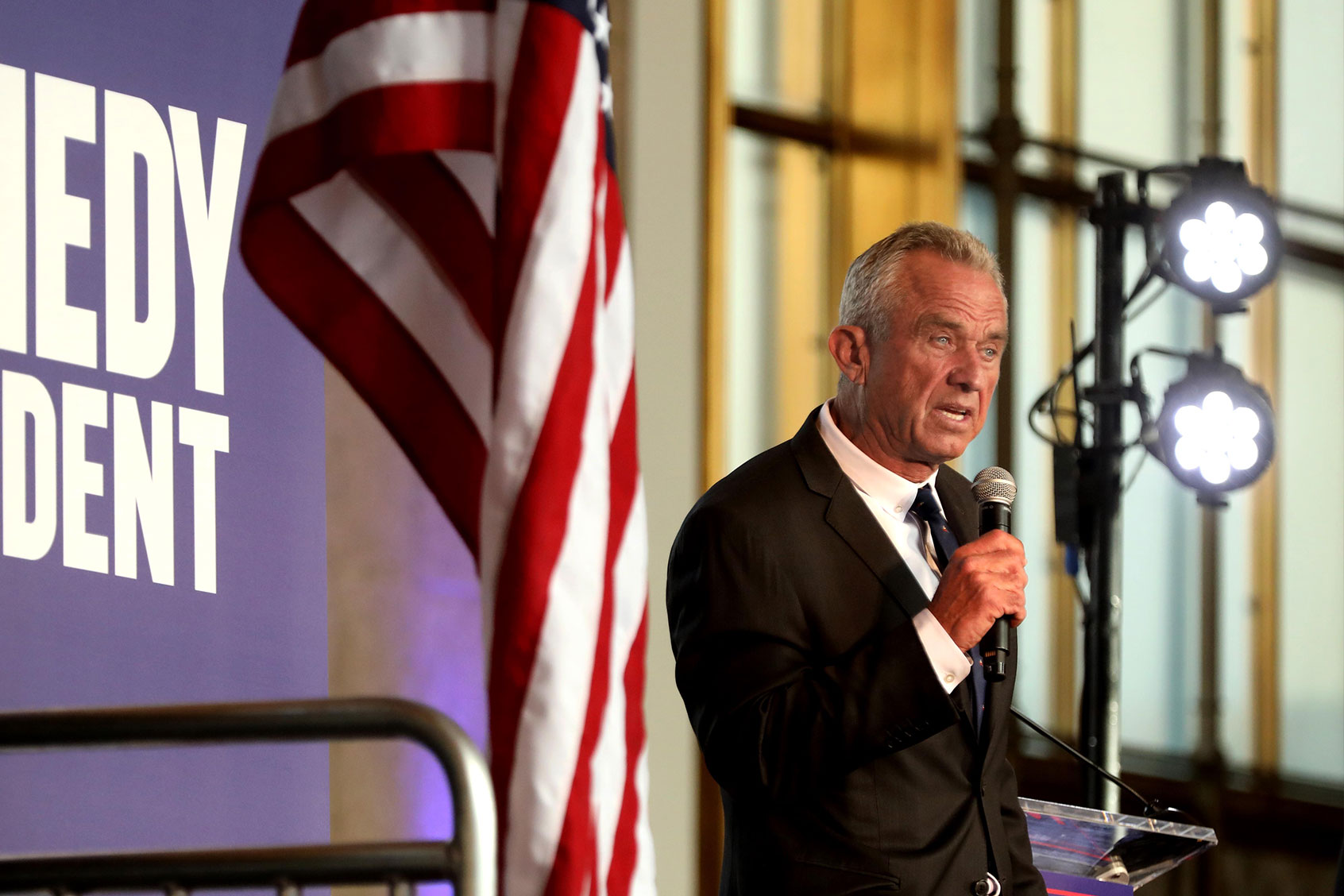URGENT UPDATE: Robert F. Kennedy Jr. is under fire for prioritizing fast food over support for America’s small farms. During a recent interview with Sean Hannity, Kennedy promoted tallow-fried French fries as part of his “Make America Healthy Again” initiative, despite the Trump administration’s drastic cuts to essential farm support programs.
Kennedy, flanked by a double cheeseburger and fries at a Florida Steak ’n Shake, claimed these fries now reflect a healthier choice due to their cooking method. However, critics highlight that his administration has already slashed over $1 billion from funding aimed at supporting small farms and improving public health. This contradiction raises urgent questions about the sincerity of Kennedy’s commitment to agricultural health.
The cuts have severely impacted programs vital for small farmers, such as a $660 million initiative that provided fresh produce to school cafeterias. Ellee Igoe, co-owner of Solidarity Farm in Southern California, expressed concern: “We’re growing healthy food and providing it to local communities. And they are canceling contracts without real reason.”
Kennedy’s campaign has branded ultra-processed foods as a public health emergency, a stance echoed by many experts. Yet, the practical implications of his policies appear focused more on rebranding fast food than on supporting local agriculture. As reported by The Guardian, independent farmers are sounding alarms over the widening gap between Kennedy’s rhetoric and the administration’s actions.
In a report released in May, the MAHA Commission, which Kennedy leads, documented the rise of childhood chronic diseases linked to ultra-processed foods. It emphasized that prioritizing whole foods produced by American farmers is essential to reversing these trends. Yet, as the ink dried on this report, funding for programs designed to accomplish this was already disappearing.
The cuts extend beyond just funding. The USDA has suspended billions in payments for at least fifteen programs supporting rural communities. This includes the shuttering of regional offices, which forces farmers to travel hundreds of miles for essential support. With rising hunger and threats to public school meal programs, the situation for American farmers has become increasingly dire.
Kennedy’s administration seems to be aligning more with corporate interests than grassroots farmers. In June, he announced a partnership with Starbucks to “further MAHA” the chain’s menu, focusing on adjustable sweetness levels and testing new products. This raises concerns about whether the “food as medicine” approach genuinely addresses public health or simply serves corporate branding.
The disconnection between Kennedy’s public messaging and the reality faced by farmers is stark. As hunger rises and public support systems falter, the urgency for real, substantive change in agricultural policy becomes more critical than ever.
As Kennedy continues to advocate for fast food as part of a health movement, farmers and rural communities are left grappling with the repercussions of funding cuts and policy neglect. The future of America’s food system hangs in the balance, and stakeholders are calling for immediate action to restore support for small farms and food security.
Stay tuned as we continue to monitor this developing story that impacts not only farmers but the health of communities across the nation.
